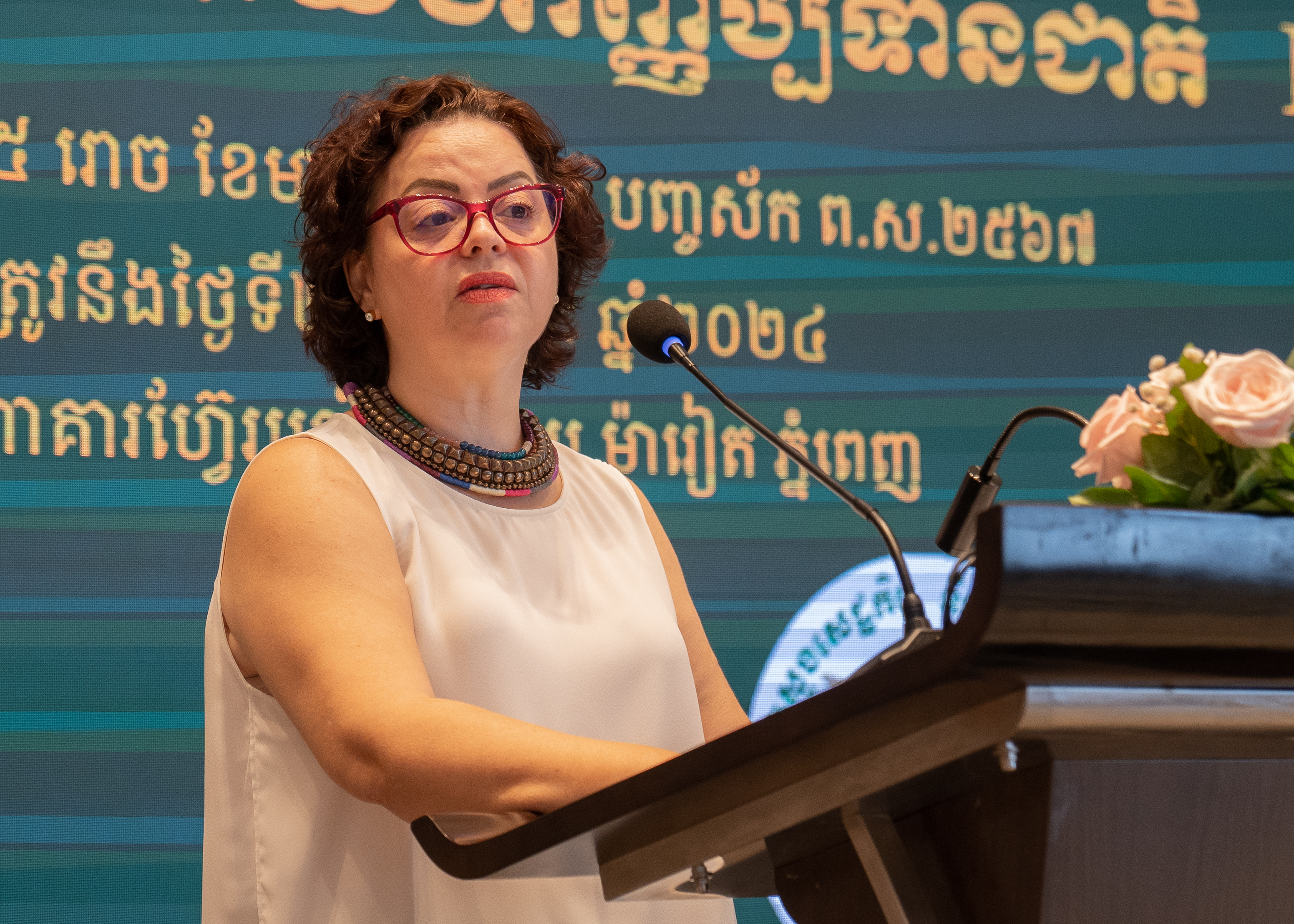Remarks by Ms. Alissar Chaker Resident Representative, UNDP Cambodia
Consultation Workshop on the Draft National Financing Policy Framework
February 29, 2024

H.E. Pen Thirong, Under Secretary of State, Ministry of Economy, and Finance
Members of the Technical Working for the National Financing Policy Framework
Distinguished Delegates
Colleagues, Ladies and Gentlemen
Choum Reap Sour!
Let me start by welcoming and thanking you all in advance for the insights and contributions which will be compiled during the discussions today. These will be invaluable for adjusting and refining the ongoing work on the Draft National Financing Policy Framework needed to achieve the ambitions set out in the Pentagonal Strategy.
As a result of improved revenue collection and prudent management of public finances, Cambodia managed a consistent economic growth during the last two decades and succeeded in mitigating the negative impacts of COVID-19. Nevertheless, the current growth model has reached its full capacity.
On the other hand, while official development assistance (ODA) remains significant– estimated at around 7% of the GDP – its composition has already started to shift towards loans with lower concessional terms. With LDC graduation and associated changes in ODA terms, trade-related impacts and other international measures, Cambodia would need to further diversify its financing paradigm. The country stands at a crossroads where the future requires innovative and integrated financing solutions. There is an opportunity now to build a more resilient and inclusive growth path.
The National Financing Policy Framework is a blueprint intended to support the achievement of the Pentagonal Strategy through three pillars:
1) Availability and Impact of Public Finance: Maximizing the efficacy and quality of public expenditure, enhancing fiscal space, and aligning spending with national priorities.
2) Increasing Public-Private Collaboration: Unlocking opportunities for private investment, introducing innovative financing instruments, and fostering partnerships.
3) Accelerating Inclusive Private Sector Development: Removing barriers to equitable private sector growth, expanding financial markets, and facilitating access to funding for MSMEs.
The success of the Financing Framework hinges on collaboration and partnership to create meaningful synergies. Without the active involvement of various public and private stakeholders in developing the national financing landscape, efforts will fall short.
While the National Financing Policy Framework represents a significant step forward, it remains work in progress. Today's workshop serves as a crucial platform for soliciting input and feedback from all participants on the proposed interventions. Constructive dialogue and engagement are essential to refine this draft so that it resonates with the needs and aspirations of Cambodia.
By harnessing the collective wisdom and expertise in this room, we can pave the way for a future where prosperity is not just a possibility.
Som Orkun!

 Locations
Locations



